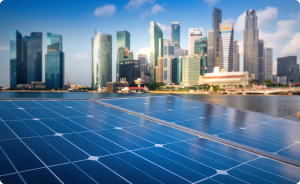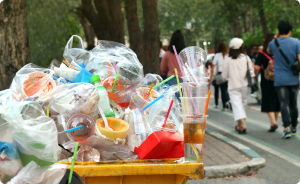Find out how your business can partner with WWF to build a more sustainable world.
WWF strives to set impactful industry aspirations on sustainability in Singapore and Southeast Asia. Through consultation and close collaboration with businesses, we build platforms, tools and practical solutions closely guided by data and science that help entire sectors to become more sustainable.
If you have would like to know more or join any of our business initiatives, please contact us at markets@wwf.sg

WWF-Singapore promotes climate, energy and nature-based solutions, to build a net-zero world. We support key industries both locally and in the region to find low-carbon pathways for growth through meaningful business transformation. Our aim is to strengthen the shared vision of limiting global warming to 1.5°C by helping businesses of all sizes ramp up climate action.

WWF-Singapore engages with local stakeholders in the e-commerce and shipping industries to halt illegal wildlife trade, on behalf of the Coalition to End Wildlife Trafficking Online. Since 2018, over 3 million illegal listings have been removed.

Through SASPO, WWF-Singapore builds awareness and capacity for businesses and consumers to adopt more sustainable sourcing practices. SASPO envisions an Asia where businesses are using 100% RSPO-certified sustainable palm oil.

Plastic ACTion (PACT) is a business initiative that aims to reduce waste and move towards a circular economy. The programme empowers companies to adapt more resource-efficient business models and processes. By providing businesses with guidance and best practices, PACT enables them to make science-based decisions for responsible production and consumption. This will lower their environmental footprint, and address the growing consumer demand for sustainability.

Responsible Seafood Action (REACT) is a holistic seafood programme to engage local stakeholders on seafood. The goal of REACT is to increase both supply and demand for sustainable seafood in Singapore, primarily through encouraging responsible sourcing practices in businesses and by working directly with local aquaculture farms to increase responsible production.
+65 6730 8100

©️ 2022 WWF – World Wide Fund for Nature (Singapore) Limited (UEN 200602275E) |
©️ 1986 Panda Symbol WWF – World Wide Fund For Nature (formerly World Wildlife Fund) | ®️ “WWF” is a WWF Registered Trademark